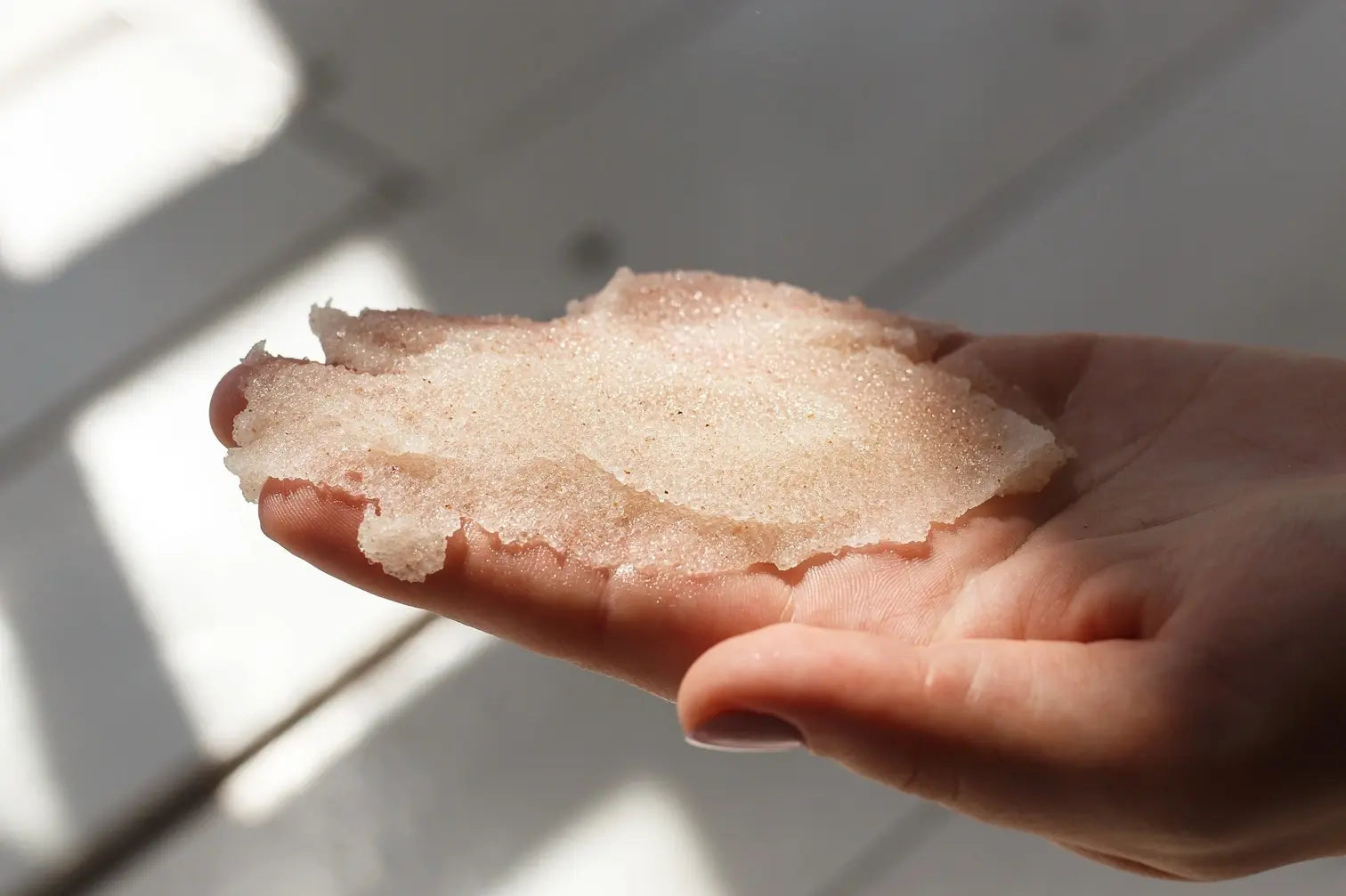Healing and Repairing Over-Exfoliated Skin
Exfoliation works by removing the dead skin cells on the outermost layer of skin, revealing living skin cells that are better able to absorb nutrients. Because you’re removing layers of skin, however, it's easy to overdo it, and it's important to moisturize after exfoliating to replenish lost moisture and support skin health. Exfoliation exposes cells that may not be equipped to deal with environmental exposure, which can lead to irritation, dryness, and flaky skin.1
Over-exfoliation often means that the stratum corneum, the outermost layer of skin, which may only be 10 to 30 layers thick, has been completely stripped away.1 This layer takes time to grow back meaning that depending on the severity of your symptoms, age, and genetic factors, the effects of over-exfoliation can last from several weeks to over a month.2,3
Care for Over-Exfoliated Skin
The two types of sunscreens are based on theiThe first step toward caring for this damaged skin is putting a full stop to exfoliating. Continuing to exfoliate the skin with a compromised skin barrier means risking increased irritation and even permanent scarring or premature signs of aging.4 To provide additional relief for your skin type, consider using anti-inflammatory treatments like hydrocortisone cream or natural remedies such as aloe vera.
Freshly damaged skin should be protected with a lightweight gentle facial moisturizer like OS-01 FACE to fortify the skin barrier and soothe the skin.* In more severe cases your skin may need products like petroleum jelly to create a physical barrier that keeps irritants out and prevents the exposed skin from drying out.4 In either case, we recommend consulting a dermatologist or physician to determine which course of action is best for you. Over-exfoliated skin exhibits signs of sun sensitivity as the layers most protective against the sun's radiation are gone or damaged. This makes sunscreen a necessity but make sure to choose one guaranteed to be gentle on the skin. We’re big fans of mineral sunscreen for the face and body.5
active ingredients, and include chemical sunscreens and physical (or mineral) sunscreens. Chemical sunscreens work by absorbing high energy UV rays and emitting them at low energy levels as heat. Mineral sunscreens work by forming a physical barrier that blocks UV rays from penetrating skin cells.
Products to Avoid
When your skin is over-exfoliated, it's vulnerable and more susceptible to irritation from many sources, even non-exfoliants. Therefore, it's important to avoid skincare products that can further irritate or damage the skin barrier. Primarily, this means avoiding products that dry out your skin until it’s fully recovered. This can include harsh chemical exfoliants, products containing alcohol, retinol, and acids such as salicylic acid, glycolic acid, lactic acid, alpha hydroxy acids). But this can also include additional hidden irritants like fragrances and essential oils that can cause unneccessary stress to the damaged skin .6 
Preventing Future Over-Exfoliation
When you notice that your skin is becoming over-exfoliated, it may be time to rethink your approach to skincare. Exfoliation is a useful tool, but only after giving your skin time to heal. Start by exfoliating only once or twice a week and work up to a level healthy for your skin. Your skin will react differently to exfoliation based on genetic factors, your environment, overall skin health, and age. This makes listening to your skin the best way to prevent over-exfoliation in the future.
- Recovery from over-exfoliation is not quick; it may take several weeks for the skin to heal.
- The damaged skin is more sensitive; Immediately cease any exfoliation to prevent further damage and allow the skin to repair.
- Stay away from harsh chemical exfoliants, alcohol, retinol, acids, fragrances, and essential oils until the irritated skin has fully recovered.
- Replace harsh scrubs and cleansers with a gentle product and moisturizer that support the skin’s repair pathways and barrier function.


